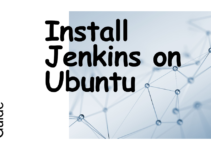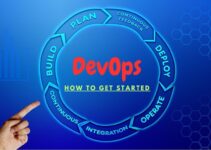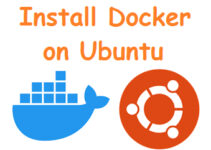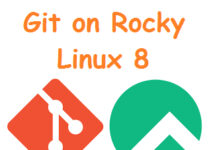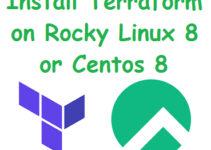In this tutorial, we listed some of the top 10 Open Source Tools every Developer should know, some of them you may already know. These tools can increase your productivity and save time in communication and collaborate with your projects easily.
Docker
Docker is an Open source tool that allows you (developer) to create and manage applications within the same Linux box. From Docker hub, you can download an online repository which is pre-build docker images.
Developers do not need to create any system which may result to mess with their existing system/configuration on their workstation. The main thing is the container start in few milliseconds.
By using kinematic you can install docker-engine and automate it.
Packer
Packer is an Opensource tool that is used to create custom machine AMI. By using Packer you can automate the image creation for your cloud environment and you can use it with multiple cloud providers –you can use Shell, Ansible, Chef to automate the application configuration in Virtual machine images.
Vagrant
Vagrant is a DevOps tool and it is widely used for development and testing. Nowadays developers use Vagrant to set up virtual machines by importing the boxes it is also called virtual machine templates.
Many application stacks come with vagrant boxes like developers want to develop LAMP stack instead of setup just search for LAMP box in the vagrant cloud it will list all available boxes developed by the community. You can save time by using these box or else you need to setup applications manually.
Assume developer needs two versions of python, Vagrant allows you to run sandboxed environments without affecting/messing with the current setup.
For example – you can have two vagrant boxes running python 2 and 3.
You can use and share a vagrant file with teams so that all avoid and save the repeated task.
Launch vagrant boxes in a matter of seconds and destroy when not required.
Jenkins
Jenkins is one of the widely used and it is Open source tools for continuous integration. Jenkins has very huge community support. It is very easy to install and easy to use. There are some Docker images available for Jenkins.
Similar to Jenkins there is another solution named “Shippable” and “Travis CI”, Both are the cloud-hosted solution. You can check this as a Jenkins alternative.
GitHub / BitBucket / Gitlab/ SVN
These are the version control system and it is needed for every development tool. The version control system provides some of the cool features such as version control, SCM functionality, bug tracking, and others.
GitHub is the largest code repository in the world, managing pull requests and tracking issues. The private repository in GitHub is not free.
Private repository in Bitbucket is free and you can easily manage or share repositories, collaborate on code and etc… you can easily integrate bitbucket with Jira which is a project management tool.
If you want to do GitHub like setup then you can check with GitLab but you need to configure all manually. The alternative is you can go with the Gitlab docker image.
Asana / Slack / Trello is the communication or collaboration tools
These are the best tool which I used earlier, some of these you know it. Here we will explain it in short.
These tools help you in communication or collaboration, with features such as integration with another system in real-time.
Slack is mostly used as you can integrate it with Skype, GitHub, Jira, Google, etc.
Trello is a great UI and whiteboard layout where you can post your checklist/To-Do list.
End of the tutorial, We have listed Top 10 Open Source Tools Every Developer should know.
Thanks for reading this article, you’ll also like to read below articles.
DevOps and Job Responsibilities
Setup AWS VPC Peering with Terraform
